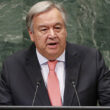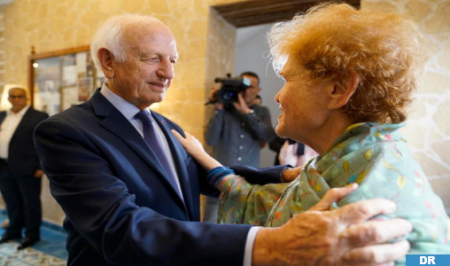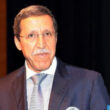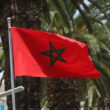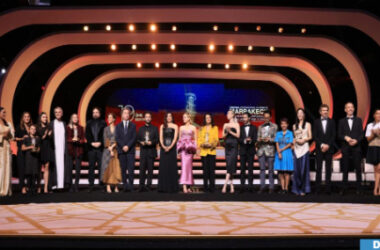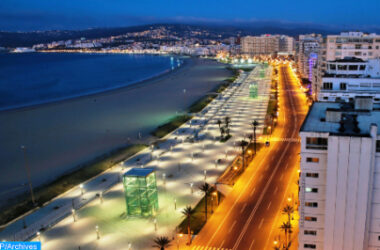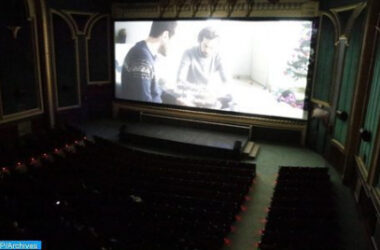Speaking at Bayt Dakira alongside Lipstadt, the Advisor to HM the King highlighted the priority given by Morocco to education, pedagogy and the voice of civil society, which were at the heart of all the meetings and debates of a rare intensity that marked Lipstadt’s program in Essaouira.
It is in this context that Azoulay put into perspective the three historic speeches of His Majesty King Mohammed VI read in Paris on March 27, 2009, and in New York in December 2015 and September 2018, speeches that have “outlined, with clarity and determination, the roadmap that Morocco has set for itself in terms of the lessons of the tragedy of the Holocaust and resistance to all denials and all racism that invade and gangrene societies that thought immune.”
“By giving diversity its rightful place in its school curricula and by giving a platform to all narratives, Morocco does not seek the ephemeral comfort of a moment’s consensus. It is a fundamental and structural choice over time that favors education, pedagogy and debate with the possibility given to our children to reappropriate the totality and completeness of their own history,” explained Azoulay.
Speaking to students, high school students and personalities gathered at Bayt Dakira to listen to her, Lipstadt called her visit to Essaouira “historic and enlightening.”
“Here, we call things by their names,” without any frill or pretense, and this is rarely the case in the “missions that are assigned to me,” stressed Lipstadt before concluding that in Essaouira she discovered in the land of Islam a World City open to all modernities, a citizen city whose ethical and plural exemplarity could inspire many others in the Community of Nations.


